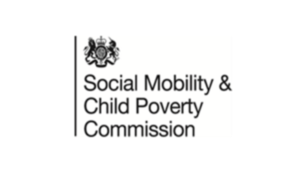Elitism rife at the top of Scottish society
A new Social Mobility and Child Poverty Commission report reveals elitism in Scotland's top professions.

Busting the myth that Scotland does not have a social mobility problem, a new commission report - ‘Elitist Scotland’ - shows that people from privileged backgrounds dominate the top professions in Scotland in much the same way as they do south of the border.
Alan Milburn, Chair of the Social Mobility and Child Poverty Commission, said the report was a “wake-up call” and that the Scottish Government should put just as much focus on helping people move up in society as on raising the floor for those at the bottom.
The report, which was produced by the commission in partnership with the David Hume Institute, shows that:
- 45% of senior judges, 32% of top media professionals and 28% of Scottish business leaders are privately educated compared to less than 6% of the Scottish population overall
- 66% of senior judges, 50% of top media professionals and 46% of Scottish MPs went to the 4 oldest Scottish universities: Edinburgh, Glasgow, St Andrews and Aberdeen
Alan Milburn said:
Low social mobility is not just an English disease. It is a Scottish one and it is a UK-wide one. Our ‘Elitist Scotland’ report should remove any shred of complacency there might be on this issue. It is both a wake-up call and a call to arms - to focus as much on helping people move up in society as on helping them off the bottom of society. Action is needed on both fronts if social justice is truly to be the motif for this nation.
In Scotland it has long been written in the DNA of the nation that everyone should have a fair chance in life. But a far bigger national effort will be needed if progress is to be made on reducing poverty and improving mobility. It should become a shared goal to create a mobile society. And I hope it can become a shared commitment to do more to create a level playing field of opportunity. A fairer Scotland - a fairer Britain - means making that the core business of us all.
Mr Milburn welcomed the fact that the Scottish Government had started to focus on the gap in educational attainment between disadvantaged kids and their peers, but noted that little progress had been achieved over the last 5 years. He called for a national mission to close the gap and for challenging targets for improving access to the most selective universities.
He underlined the need for action by highlighting the way disadvantaged children fall further and further behind as they grow up:
- by the age of 5, children from the highest income quintile are on average 13 months ahead of their peers in the lowest income quintile in their knowledge of vocabulary, and 10 months ahead in their problem-solving ability
- by the age of 13, over half of children in the most deprived areas of Scotland are failing to meet expected levels in numeracy and they are twice as likely to fail to do so as their peers in the most affluent areas of Scotland
- by the time they leave school, only a third of children registered for free school meals leave school with 5 or more standard grades at credit level or better - compared to two thirds of their peers, and only 1 in 20 leave school with an advanced higher qualification compared to 1 in 5 of their peers
- by the age of 20, only a quarter of young people from the most deprived areas have entered higher education compared to almost two thirds of those from the most affluent areas. Fewer than 1 in 10 young people from the most deprived areas have entered degree-level courses by the age of 20 compared to almost half of their peers. And fewer than 1 in 7 young undergraduates at the elite ancient universities are from working class backgrounds
Douglas Hamilton, Scotland’s Commissioner on the Social Mobility and Child Poverty Commission, said:
Improving social mobility needs to be a central element of any attempts to create a fairer Scotland.
Although we recognise that children will have very different starting points in life, we want to make sure that every child, regardless of background, is given the best possible chance to reach their full potential.
Recent moves to address education inequalities and widen access to university are a step in the right direction, but today’s report shows that there is still a long way to go.
Ray Perman, Director of the David Hume Institute, said:
The commission’s ‘Elitist Britain’ report showed that important UK institutions are dominated by a narrow elite, many of whom were privately educated and attended the same prestigious universities. We investigated the situation in Scotland and found similar results.
Our work highlights the need for further research to understand why the social backgrounds of those at the top of Scottish society appear to be so different to the population as a whole. It also demonstrates the need for greater effort from the government, schools, universities and employers to improve access to the top jobs.